Tenfold NetZero Accelerator Programme
Open date: Thursday 4 April 2024 Close date: Sunday 12 May 2024
Overview
In November 2023, DAERA announced its partnership with Digital Catapult Northern Ireland on a new innovation programme to provide local businesses with the opportunity to access the UK’s world class technology community to tackle challenges they face in the drive towards Net Zero. Following months of engagement with a variety of businesses across Northern Ireland, DAERA and Digital Catapult are pleased to announce that the Tenfold NetZero Accelerator programme will support three of Northern Ireland’s leading agriculture and manufacturing businesses: AgriSearch, Dale Farm and Encirc.
The Tenfold NetZero Accelerator programme will aim to develop innovative methods that will help improve efficiency on-farm linked to feed management and usage, and easy access to nutrient data; as well as help reduce waste during the production of dark glass bottles. The programme is now taking applications from the UK’s world-class technology startup and SME community to support the development of these solutions working alongside Dale Farm, AgriSearch and Encirc respectively. Each successful technology provider will receive £20,000 in funding from the industry partners.
The Climate Change Act 2022 sets an ambitious target to reduce Northern Ireland’s greenhouse gas emissions to Net Zero by 2050 and it is hoped the programme can deliver sustainable climate action solutions and help local business achieve net zero. The programme also aligns with the DAERA Innovation Strategy which aims to support the development of an innovation ecosystem to deliver on the Executive’s Green Growth Agenda.
Through the programme, each industry challenge owner will be paired with an innovative technical solution provider to craft a proof-of-concept, marking the initial step towards addressing the identified challenges. Advanced technologies such as 5G, the Internet of Things (IoT), artificial intelligence (AI) and machine learning (ML), as well as virtual and augmented reality (VR/AR) can be leveraged for this purpose. DAERA and Digital Catapult are firmly committed to fostering economic growth by promoting the industrial adoption of pioneering solutions. These efforts seek to bolster companies’ competitiveness and resilience by pairing sustainability with digitalisation. The programme serves as a testament to the value of strategic collaboration among key stakeholders in pursuit of these objectives.
About the programme
The Tenfold NetZero Accelerator Programme encourages a wide range of technology solution providers to apply, not only from across Northern Ireland but also the wider UK. In particular, we invite businesses using an advanced technology that Digital Catapult works with such as: 5G, Quantum, Artificial Intelligence (AI), Machine Learning (ML), Distributed Ledger Technology (DLT) or Internet of Things (IoT).
Each technology solution provider will be required to provide a proof of concept (PoC) against a selected Net Zero industry challenge, leveraging the appropriate advanced digital technologies.
Following the judging and contracting phase, three technology solution providers will be chosen to receive £20,000 in cascade funding, one for each challenge. These participants will have the opportunity to develop proof of concepts tackling real industry challenges. These will demonstrate the feasibility of an idea, rather than its finalisation.
The solution providers collaborate closely with industrial sponsors and receive support from Digital Catapult experts during the development phase, spanning from June to September 2024. The final presentations of the PoCs will be made at the Showcase event scheduled for Autumn 2024. During this event, technology solution providers can showcase their PoCs to various stakeholders, including DAERA, the challenge owners, and other relevant organisations from the sector.
Cascade funding will be distributed in three stages:
1st Milestone (a third): Being selected as the successful applicant for one of the three industry challenge owner challenges.
2nd Milestone (a third): Progressing satisfactorily towards delivering the PoC at the programme mid-point.
3rd Milestone (a third): Successfully demonstrating the PoC at the Showcase Event, hosted in Northern Ireland in Autumn 2024.
Benefits
Successful applications will be awarded £20,000 in Cascade Funding, which will be distributed throughout the duration of the programme
An opportunity to become part of DAERA’s inaugural NetZero Accelerator Programme
The chance to showcase and demonstrate the fully developed Proof-of-Concept at the Showcase Event, scheduled to take place in Northern Ireland in Autumn 2024
Work closely with a high-profile challenge-owner within DAERA’s remit – AgriSearch, Dale Farm or Encirc
Who’s involved
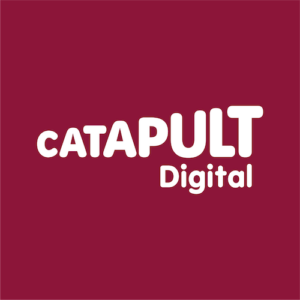
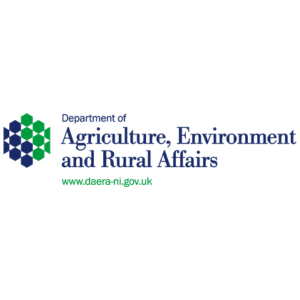
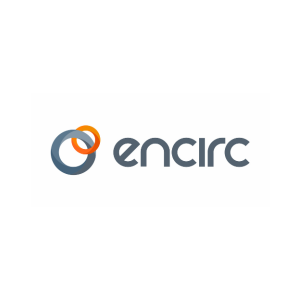
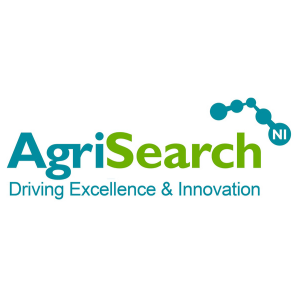
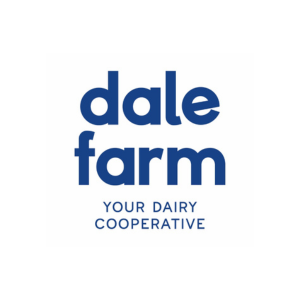
Encirc Challenge
How can improved bottle inspection technologies increase successful defect detection within dark glass containers, reducing the need to conduct rework and associated energy consumption and cost?
About Encirc
Established in 1998 with its first plant situated in Northern Ireland, Encirc has evolved into a market leader in glass container design, manufacturing, bottling and logistics solutions for the UK and Irish food and beverage industries. Renowned not only for its market leadership but also for its unparalleled commitment to sustainability, Encirc stands out as the foremost eco-conscious entity in its industry worldwide.
Encirc has put forth a challenge aimed at rectifying deficiencies in the current inspection capabilities within its bottling plant. Specifically, the focus is on enhancing bottle inspection technologies to bolster defect detection rates within Encirc’s dark glass containers. This improvement initiative seeks to minimise the necessity for rework while curbing associated energy consumption and costs. Given the distinctive color and opacity of the dark glass container they produce, conventional quality inspection methods encounter limitations. Being the sole global supplier of this particular product, Encirc faces the challenge that original equipment manufacturers (OEMs) of glass inspection machinery possess limited expertise in inspection techniques tailored to this specific glass type.
Solution Requirements
Various technologies employed thus far encompass infra-red technology, high-resolution cameras, X-ray, and manual inspections. Nonetheless, these approaches either lack precision or scalability to meet the demand of inspecting 250 bottles per minute on the production line. This invitation calls upon companies to propose a solution leveraging one or more technologies to address this challenge.
Some of the essential elements required for Encirc’s PoC include:
- Capable of inspecting up to 250 bottles per minute on the production line
- Capable of detecting inclusions embedded in the glass that are 2mm or larger
- Capable of detecting finish defects and malfromed threads
- User-friendly interface with easy setup
- Ability to communicate with existing loss accounting equipment
AgriSearch Challenge
What new data visualisation tools can help drive behaviour change amongst farmers towards improved organic manure application (nutrient management), leading to positive economic and environmental outcomes across Northern Ireland farms?
About AgriSearch
Founded in 1997, AgriSearch was established with the aim of providing beef, dairy, and sheep farmers with a platform for direct involvement in production-oriented research. Funds contributed to AgriSearch are used to commission research projects aimed at enhancing and advancing beef, sheep, and dairy farming practices.
At the heart of AgriSearch’s mission is the commitment to delivering tangible benefits to primary producers, with a focus on cost reduction, performance enhancement, fostering innovation, and improving animal welfare. The organisation prioritises avoiding duplication of existing research and aims to maximise the utilisation of complementary funding sources wherever possible.
The challenge at hand revolves around optimising nutrient management practices across farms in the region and harnessing the potential of new data visualisation tools to instigate behavioral changes among farmers. This shift is aimed at promoting improved organic manure application practices, which in turn can yield positive economic and environmental outcomes for Northern Irish farms.
Currently, farmers encounter challenges in planning and executing the use of fertilisers on their land. With a gap in effectively utilising organic manures, and engagement within the farming community lacking; increased adoption of organic manures not only reduces expenditure on manufactured fertilisers but also mitigates nutrient losses into the environment, thereby positively impacting issues related to soil and water quality.
Solution Requirements
The proposed solution entails aggregating and analysing existing relevant data sources, such as the Sustainable Horticulture Nutrient System (SHNS), and developing a user-friendly mobile application or tool. This tool would empower farmers to make informed decisions regarding the where and when of organic manure application, optimising efficiency and economic impact. The development process may involve leveraging data analytics, machine learning/artificial intelligence (ML/AI), and data visualization techniques.
Essential requirements for the AgriSearch PoC may include:
- Visualisation of data including nutrient levels with Phosphorus (P), Potassium (K), and pH, represented with color-coded maps
- Integration of weather data and data from SNHS, Farm Maps, and NiFas
- Provision for manual data entry with field names and group fields where appropriate
- Display of economic data indicating the value of organic manure when applied to the correct field
- Accessibility via mobile phones, tablets, and PCs for ease of use by farmers
- Compliance with NAP standards (Nutrient Action Programme).
- Implementation of robust data security measures and accessibility procedures within the developed system.
Drive to Net Zero
This challenge represents a significant step towards achieving Net Zero emissions. The practical distribution and utilisation of manufactured fertilisers constitute a substantial portion of the sector’s greenhouse gas emissions, accounting for approximately 20% of Northern Ireland farmers’ GHG emissions. By promoting the judicious use of organic manures, reliance on manufactured fertilisers can be minimised. Additionally, employing data-driven precision in the transportation and application of organic manures across farms can further reduce carbon emissions stemming from farm machinery operations.
Dale Farm Challenge
How can the application of IoT enable more accurate measuring and use of feed at a farm-level across Dale Farm’s co-operative, including farms of different technology maturity, contributing to improved economic and sustainability outcomes?
About Dale Farm
With a workforce of over 1,200 individuals spread across the UK and Ireland, Dale Farm stands out as one of the largest and most expansive dairy companies in the UK. The company’s operations span the entire food chain, from producing animal feed to collecting milk from farms, processing dairy products, and delivering them to stores. Dale Farm’s dairy products find their way into retail, foodservice, and ingredient markets across more than 45 countries.
Dale Farm recognises the abundance of data sources at its disposal, which can significantly enhance decision-making regarding resource allocation and operational efficiencies on their farms. They anticipate that leveraging data more effectively can positively impact various business aspects, including monitoring feed levels on partner farms, tracking bulk feed intake on individual farms, and monitoring feed consumption at the individual animal level.
Their challenge lies in exploring how the application of Internet of Things (IoT) technologies can facilitate more accurate measurement and utilization of feed at a farm-level across Dale Farm’s cooperative, encompassing farms of varying technology maturity. This initiative aims to contribute to improved economic and sustainability outcomes.
Solution Requirements
Initial solutions aimed at enhancing livestock feed management across farms would leverage both existing and new data governance frameworks, data visualisation techniques, IoT devices, and artificial intelligence/machine learning (AI/ML) algorithms to offer feasible solutions.
Essential elements required for the PoC include:
- Establishment of infrastructure integrating sensors, gateways, and remote connectivity to report both aggregated and individual data metrics to a centralised platform.
- Reporting of data to both individual farms and the Dale Farm systems.
- Correlation and display of specific data metrics for analysis purposes.
- Deployment of a user-friendly system post-installation, allowing for simple configuration adjustments based on conditions, such as selecting different options.
- Utilisation of industrial-grade equipment, such as IP67 or IP68-rated devices, suitable for operation in harsh environmental conditions.
Drive to Net Zero
Efficient resource management through improved access to and utilisation of data across the Agrifood, Livestock, transportation, and logistics sectors plays a pivotal role in driving toward Net Zero emissions. This challenge aligns closely with these objectives, holding significant potential to serve as a use case for carbon reduction across various facets including production, transportation, logistics, waste and resource management, and supply chains.
Key dates

Sunday 12-19 May
Midnight May 12 – Dale Farm & Agrisearch applications close. Midnight May 19 – Encirc applications close.

Late May 2024
Announcement of successful applicants.

Autumn 2024
Opportunity to present and demonstrate the complete PoC at the Showcase Event.
Who should apply?
The Tenfold NetZero Open Call encourages a wide range of technology solution providers to apply, not only from across Northern Ireland but also the wider United Kingdom.
The programme is now inviting applications from UK-registered businesses using an advanced technology that Digital Catapult works with such as:
- 5G
- Quantum
- Artificial Intelligence (AI)
- Machine Learning (ML)
- Distributed Ledger Technology (DLT)
- Internet of Things (IoT)
The Technology Solution Providers will be required to provide a proof of concept against a particular challenge, leveraging the appropriate advanced digital technologies, and are also subject to other minimum requirements of eligibility that are typical to this type of programme (see FAQs).
Key info
How to Apply
An overview of the application process is as follows:
- Applicants must apply via the application form which can be found here.
- As part of the application, you will be asked to demonstrate that you meet the conditional requirements for the Challenge Call.
- Once you start your application you will have until 23:59 GMT on Sunday 12 May to submit your Dale Farm or Agrisearch application and until 23:59 GMT on Sunday 19 May for Encirc applications.
- Should you require any assistance with the application you can reach out to [email protected]k to explore the suitability of your project for the challenges.
Selection and On-boarding Process
From an initial application form, Digital Catapult will undertake an initial assessment of the applicants against the programme requirements & selection criteria. Shortlisted applicants may be invited to interviews with the Industry Challenge Owners to enable ranking of Shortlisted Applicants based on the Applicants and Interviews. A final selection per Challenge is then made.
Successful applicants will then be notified and provided with a standard Programme Agreement for Review. These contracts are standard and non-negotiable. We do try and ensure these contracts are fair and reasonable. Invitation to programme kick-off with the Industry Challenge Owners late-June will then follow provisionally on the completion of this agreement.
Selection Criteria
Applications to Tenfold will be assessed and selected based on 5 Selection Criteria, each will be assessed against a 0-5 scale
- Problem and Challenge: The applicant should demonstrate that their company is addressing a clear problem as well as applying advanced digital technologies to tackle the selected challenges.
- Growth Potential: The company should be capable of identifying their upside potential as well as how they stand out compared to competitors in the market.
- Technical and Business Capability: The company should be able to articulate its revenue model as well as a robust plan for PoC development.
- Team Experience: The company and its employees should have the necessary expertise and skill to consistently develop, deliver their solution.
- Sustainability & Responsibility: The company should be able to define how their PoC development aligns with the principles.

